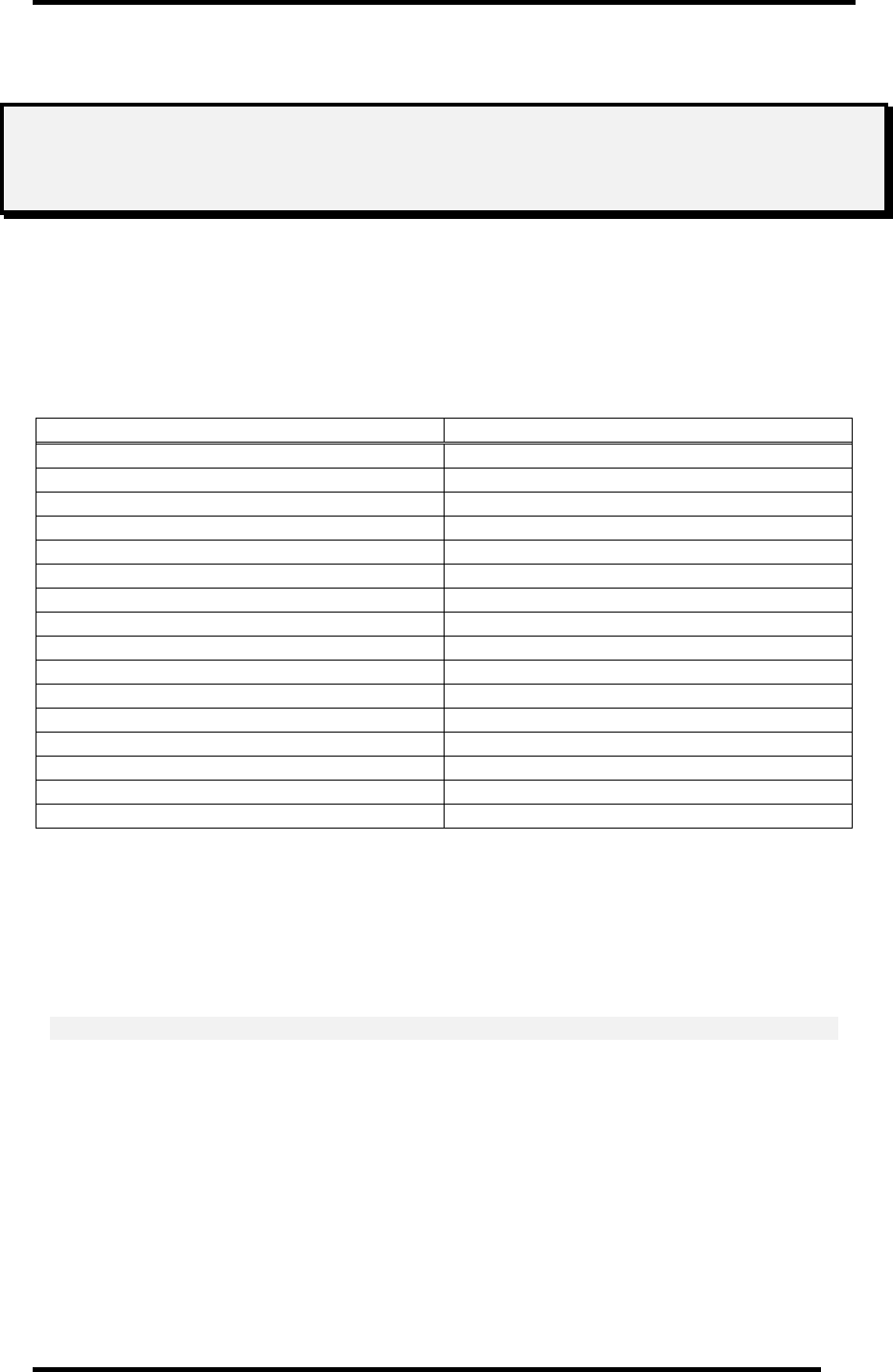
10 C/C++ Expressions
253
10. C/C++ Expressions
10.1 Writing C/C++ Expressions
You can use C/C++ expressions consisting of the tokens shown below for registering C watchpoints
and for specifying the values to be assigned to C watchpoints.
Token
Example
Immediate values 10, 0x0a, 012, 1.12, 1.0E+3
Scope ::name, classname::member
Mathematical operators +, -, *, /
Pointers *, **, ...
Reference &
Sign inversion -
Member reference using dot operator Object.Member
Member reference using arrow Pointer->Member, this->M mber e
Pointers to Members Ob ct.*var, Pointer->*var je
Parentheses (, )
Arrays Array[2], DArray[2] [3] , ...
Casting to basic types (int), (char*), (unsigned long *), ...
Casting to typedef types (DWORD), (ENUM), ...
Variable names and function names var, i, j, func, ...
Character constants 'A', 'b', ...
Character string literals "abcdef", "I am a boy.", ...
10.1.1 Immediate Values
You can use hexadecimals, decimals, octals as immediate values. Values starting with 0x are
processed as hexadecimals, those with 0 as octals, and those without either prefix as decimals.
Floating-point numbers can also be used to assign values to variables.
Notes
• You cannot register only immediate values as C watchpoints.
• The immediate value is effective only when it is used in C/C++ language expressions that specify
C/C++ watchpoints or when it is used to specify the value to be assigned to those expressions.
When using floating-point numbers, operation cannot be performed on an expression like 1.0+2.0.


















